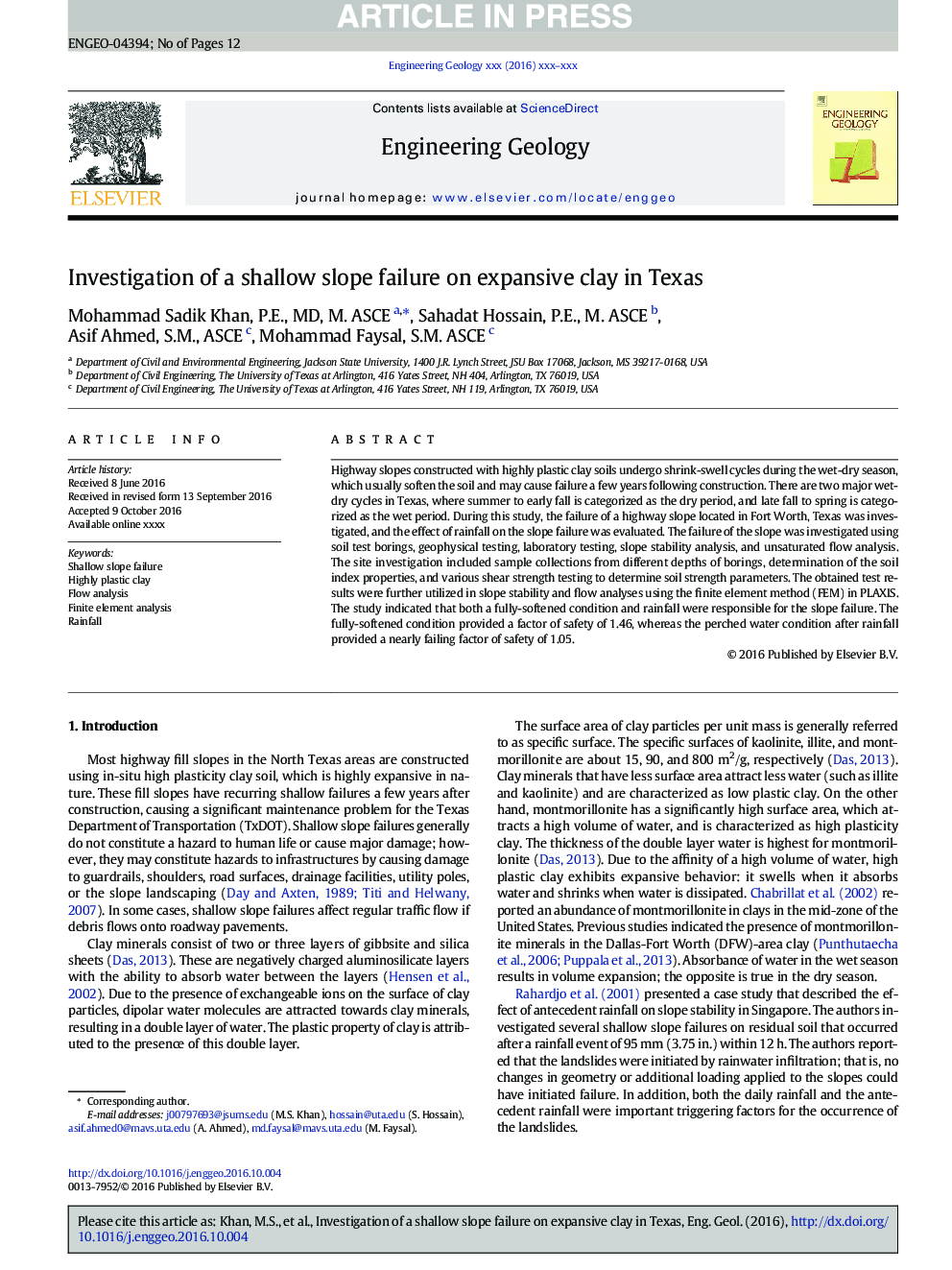| Article ID | Journal | Published Year | Pages | File Type |
|---|---|---|---|---|
| 5787667 | Engineering Geology | 2017 | 12 Pages |
Abstract
Highway slopes constructed with highly plastic clay soils undergo shrink-swell cycles during the wet-dry season, which usually soften the soil and may cause failure a few years following construction. There are two major wet-dry cycles in Texas, where summer to early fall is categorized as the dry period, and late fall to spring is categorized as the wet period. During this study, the failure of a highway slope located in Fort Worth, Texas was investigated, and the effect of rainfall on the slope failure was evaluated. The failure of the slope was investigated using soil test borings, geophysical testing, laboratory testing, slope stability analysis, and unsaturated flow analysis. The site investigation included sample collections from different depths of borings, determination of the soil index properties, and various shear strength testing to determine soil strength parameters. The obtained test results were further utilized in slope stability and flow analyses using the finite element method (FEM) in PLAXIS. The study indicated that both a fully-softened condition and rainfall were responsible for the slope failure. The fully-softened condition provided a factor of safety of 1.46, whereas the perched water condition after rainfall provided a nearly failing factor of safety of 1.05.
Related Topics
Physical Sciences and Engineering
Earth and Planetary Sciences
Geotechnical Engineering and Engineering Geology
Authors
Mohammad Sadik (M. ASCE), Sahadat (M. ASCE), Asif (S.M., ASCE), Mohammad (S.M. ASCE),
